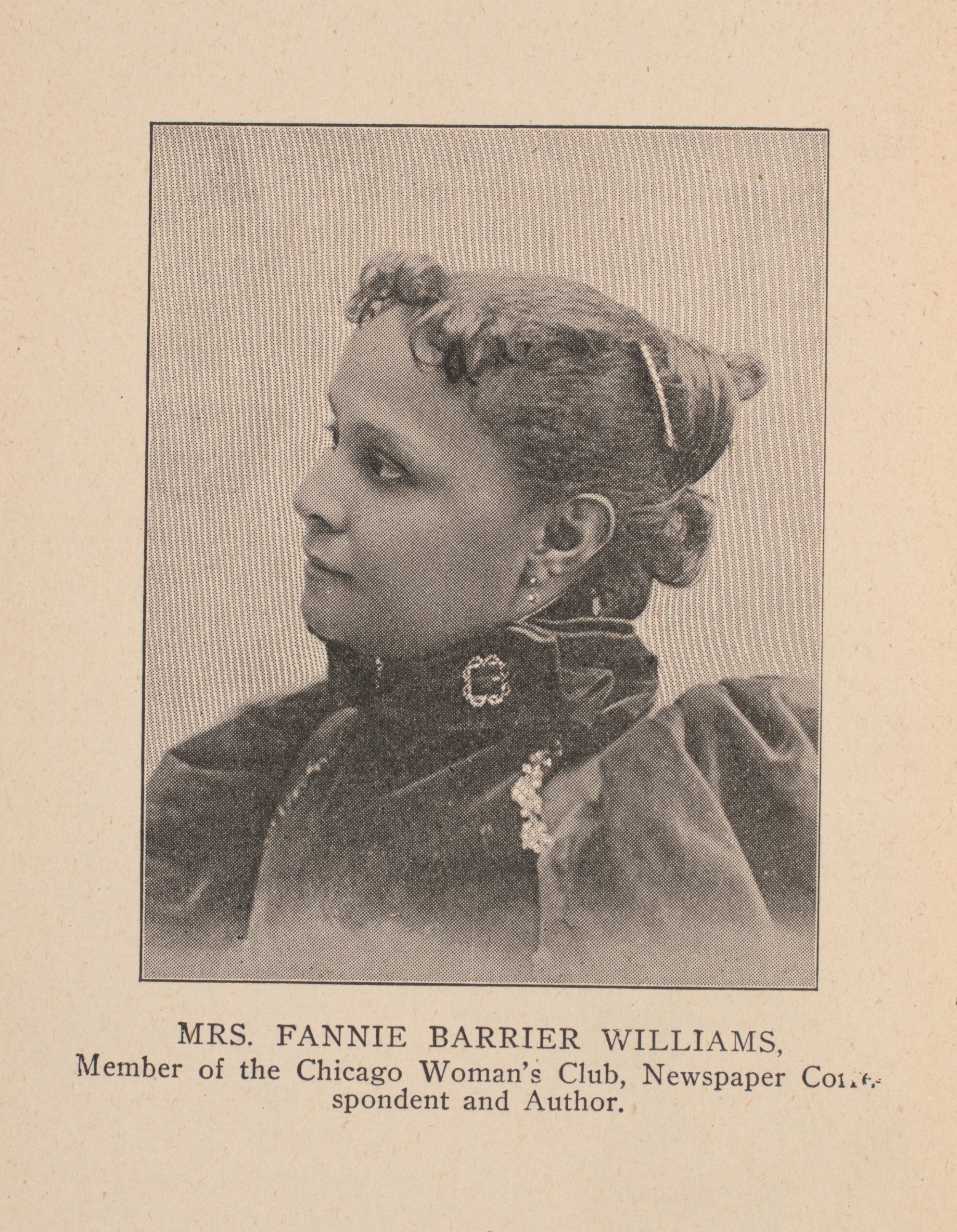
On February 12, 1855, Fannie Barrier was born in Brockport, New York. She was the first African American to graduate from Brockport State Normal School (now SUNY-College at Brockport) in 1870. She held several teaching positions, first in Missouri and later in Washington, DC, where she met her future husband, S. (Samuel) Laing Williams, a law student. The couple married in 1887 and settled in Chicago, where they were active among community reformers.
Though often not treated as an equal in organizations run by white women, Barrier Williams joined the Illinois Woman’s Alliance (IWA), which worked to obtain legislative support for women’s issues, particularly regarding health. However, Black women faced the dual burden of racism and sexism and did not have the luxury of battling only for women’s rights. Their longtime activism reached new heights in the early 1890s with the creation of a network of women’s clubs devoted to social action. Many of the issues they addressed remain painfully familiar and unresolved, such as a racist criminal justice system, violent attacks on Black people intended to maintain racial oppression, exclusion from white institutions, and economic disparities.
Chicago women were leaders in this national movement. Barrier Williams helped found the National League of Colored Women in 1893, created the National Federation of Afro-American Women with Mary Church Terrell in 1895, and represented Illinois’s Black clubwomen at the Colored Woman’s Congress in Atlanta in 1895. To her, the women’s club movement was a “national uprising” of Black women “pledged to the serious work” of racial advancement.
Learn more about the Black women’s club movement in the “Visionary Women” part of our online experience Democracy Limited: Chicago Women and the Vote.
About Democracy Limited
A century after ratification of the Nineteenth Amendment, the Chicago History Museum invites visitors to explore women’s activism in Chicago to secure the right to vote—and beyond. In our digital experience, Democracy Limited: Chicago Women and the Vote, discover the ways women organized to challenge the status quo and how these different paths led to a mass movement for suffrage. Find out what the vote did and did not accomplish, and for whom. Connect themes of the past with the present, which remind us that while injustice and inequality persist, so do activist women.